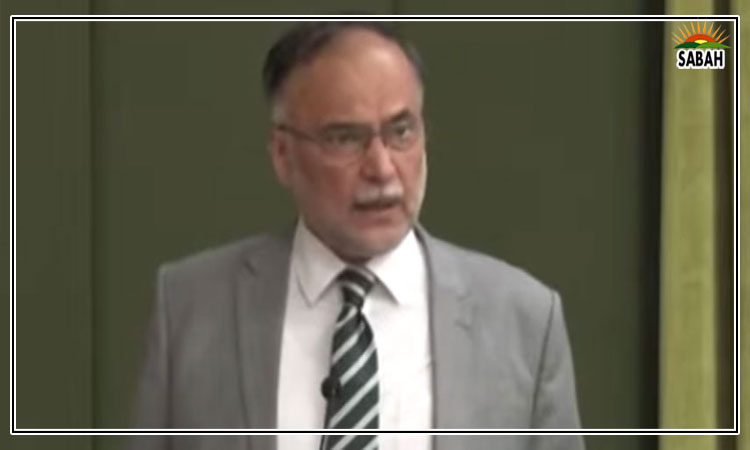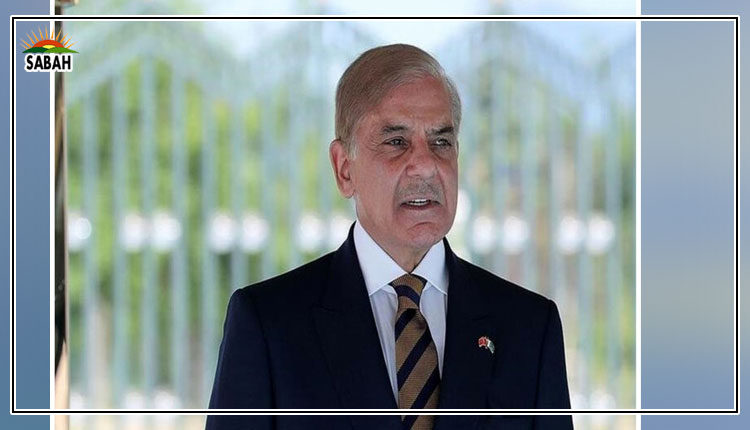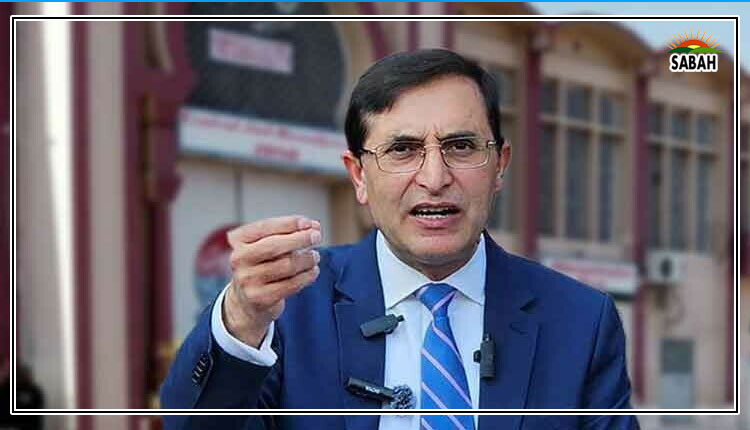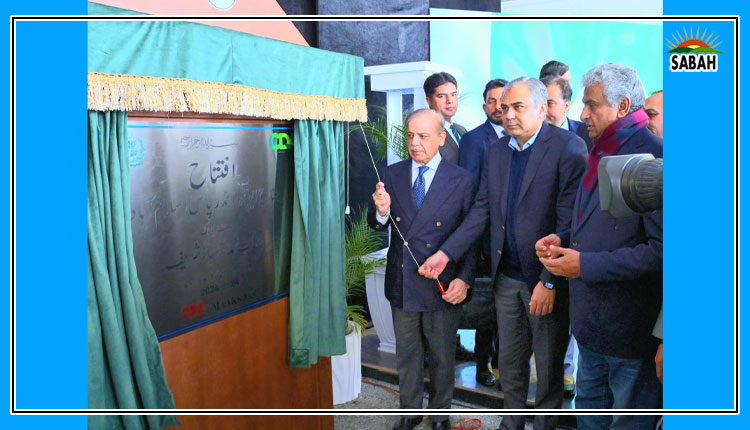Judicial Magistrate Aman Malik sends Dr. Shahbaz Shabbir Gill to jail on 14-days judicial remand
ISLAMABAD, August 24 (SABAH): Rejecting Islamabad police’s plea for an extension in the physical remand of Pakistan Tehreek-e-Insaf leader Dr. Shahbaz Shabbir Gill, who is party chair Imran Khan’s chief of staff, a district and sessions court on Wednesday sent him to prison on 14-days judicial remand.
Judicial Magistrate Aman Malik heard the plea seeking a seven-day remand extension in a sedition case. Apart from that, the police also asked the court to grant judicial remand of the PTI leader in an arms recovery case.
The judgment comes as the two-day period of Gill’s remand — initially approved last Wednesday — expires, much later than the scheduled date as the court concluded at previous hearings that the remand began late and as such remained incomplete.
The judgment was issued by Judicial Magistrate Malik Aman, who sent Gill on a judicial remand.
At the commencement of the hearing, Gill’s lawyer, Faisal Chaudhry, told the court that he intended to get a power of attorney signed today. The judge, however, remarked that the power of attorney had been signed earlier. He then asked the lawyer whether Gill had arrived in court.
To that, Chaudhry replied in the negative and pointed out that the suspect was yet to reach even when it was past his scheduled time of arrival at 1pm. He asked the court whether he should start his arguments.
The judge, however, pointed out that before the arguments it would have to be seen what was written by the investigating officer in the case file. “The file is not here yet,” he said.
Later, police produced Gill before the court and sought another seven days of his custody.
Presenting his arguments for the remand’s extension, Special Prosecutor Raja Rizwan Abbasi pointed out that in a separate but related case registered against Gill on charges of possessing unlicensed weapons, the PTI leader’s judicial remand had been sought.
He maintained that police were “interrogating the suspect everyday” and contended that police needed his custody to conduct a polygraph test.
“Not a second was during the investigation against Shahbaz Gill,” he said, adding that however, the probe was yet to be completed.
The special prosecutor Raja Rizwan Abbasi informed the court that during the 48-hour period of Gill’s physical remand, his room at the Parliament Lodges was searched and phones and four universal serial buses (USBs) were investigated. But, he added, “we still want answers to some questions”.
Prosecutor Abbasi said the “main mobile phone” in Gill’s use was yet to be seized and his polygraph test was to be conducted out in Lahore. At that, the judge inquired whether the request for a polygraph test was not made during Gill’s last remand.
The prosecutor clarified that the request was not made during the last remand period but the one that was suspended prior to that.
The judge then observed that an August 22 court order in the case mentioned that the polygraph test would be conducted in Islamabad.
The prosecutor general explained that the order stated that the test might be conducted in the capital. “It is could be carried out in Islamabad, we would get it done here,” he said.
He continued that some progress had been made in the investigation but the probe was yet to complete. “We have to recover somethings and interrogate the suspect.”
Speaking to the media after the verdict, Gill’s lawyer, Faisal Chaudhry, said the PTI leader’s legal team was going to immediately file a bail application for his release and that the case against him was based on lies.
He claimed that the remarks attributed to Gill in the first information were not his comments made during the ARY News bulletin. Faisal Chaudhry added that he would also challenge in the Supreme Court (SC) the Islamabad High Court’s order that rejected Gill’s plea against his continued remand.
The lawyer stressed that “we, as a society, need to discourage custodial torture”.
“I accept it was a mistake that people didn’t stand up for these issues in the past … but if no one stood up in the past, it doesn’t mean you don’t stand up today as well,” he said.
Faisal Chaudhry said the government should also get approved the custodial torture bill, that was pending in a standing committee, for the benefit of the common man and to prevent violence. He added that he would ensure that the probe into Gill’s alleged torture was completed and called for constituting a commission to investigate the claims.
The commission, he said, should comprise sitting high court or SC judges instead of a retired judge since the matter was of “public interest at large”.
Dr. Shahbaz Gill was arrested on August 9 under Sections 34 (common intention), 109 (abetment), 120 (concealing design to commit offence punishable with imprisonment), 121 (waging war against state), 124-A (sedition), 131 (abetting mutiny, or attempt to seduce a soldier, sailor or airman from his duty), 153 (provoking to cause riot), 505 (statement conducing to public mischief) and 506 (punishment for criminal intimidation) of the Pakistan Penal Code (PPC).
Later Section 201 of the PPC — causing disappearance of evidence of offence or giving false information to screen offender — was added to the FIR.
A day after his arrest, an Islamabad district and sessions court had granted police a two-day physical remand of the PTI leader.
Two days later, police had sought an extension in the remand but the court had turned down the request and sent Gill on a judicial remand instead.
Police had then filed a review petition against the rejection of their application the same day. However, this appeal was also rejected and subsequently, Islamabad Advocate General Jahangir Khan Jadoon moved the Islamabad High Court (IHC) for Gill’s physical remand.












